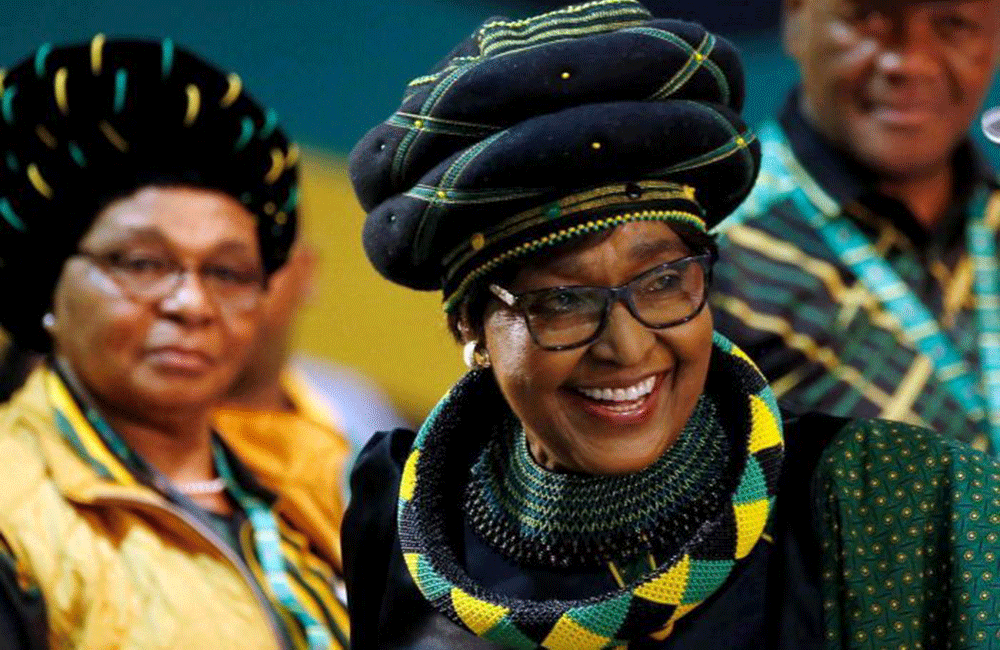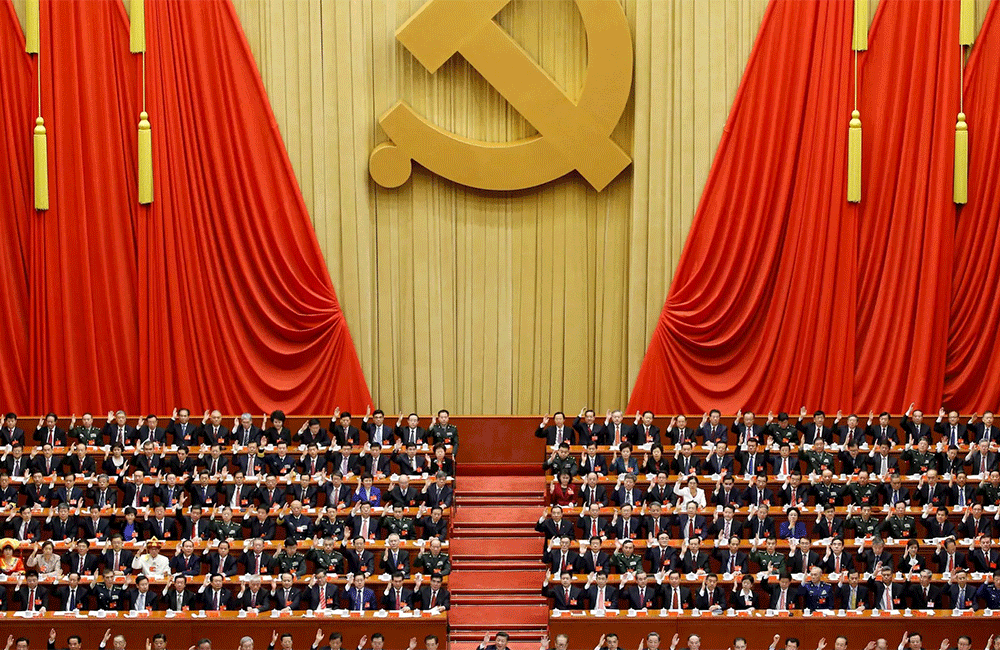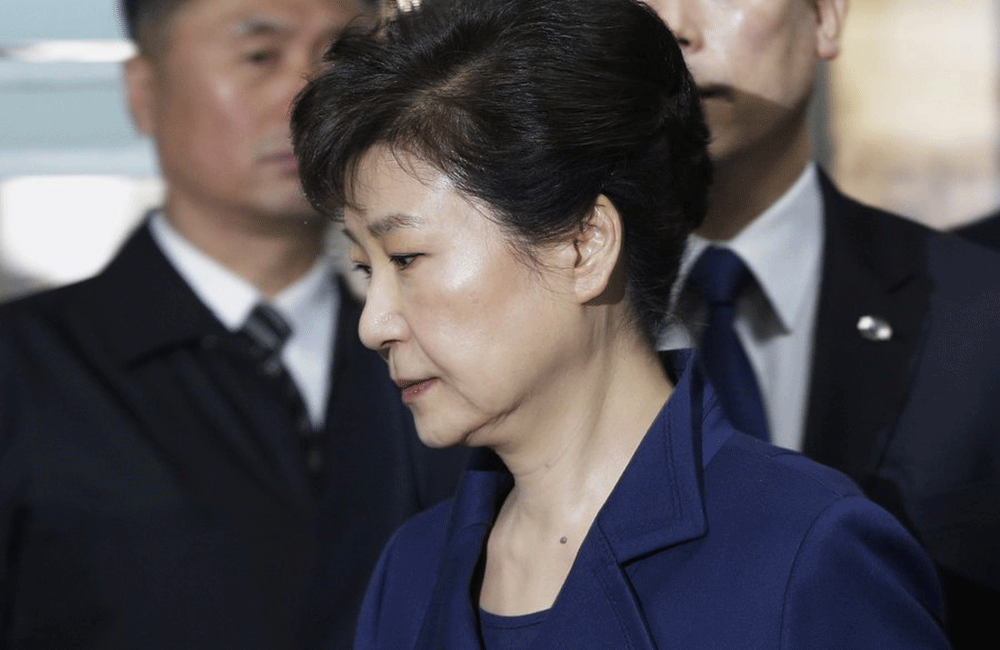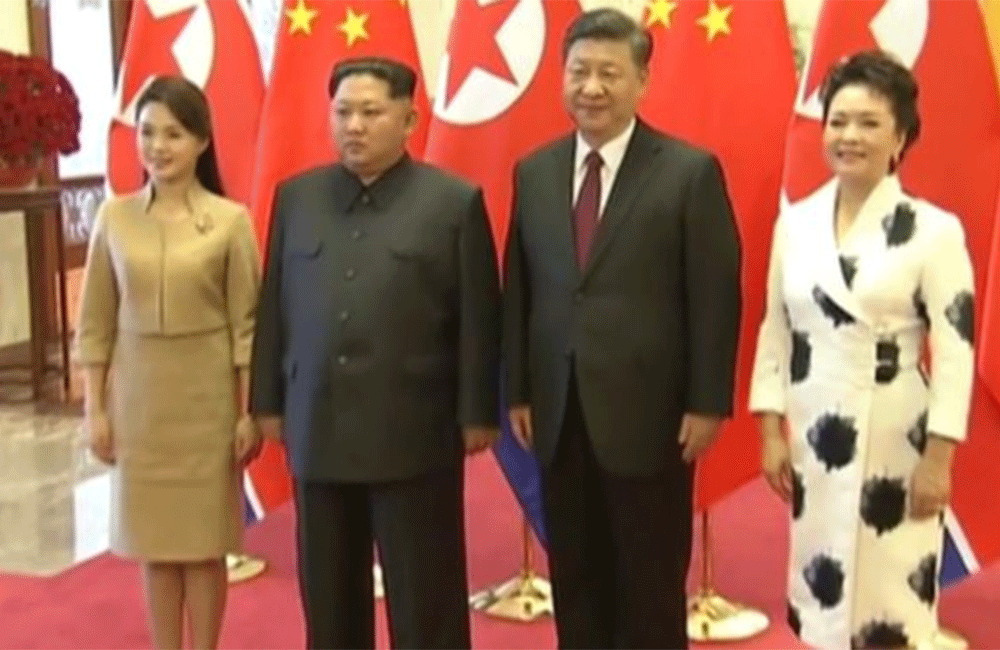World

Richest 1% on target to own two-thirds of all wealth by 2030
The world’s richest 1% are on course to control as much as two-thirds of the world’s wealth by 2030, according to a shocking analysis that has lead to a cross-party call for action.
World leaders are being warned that the continued accumulation of wealth at the top will fuel growing distrust and anger over the coming decade unless action is taken to restore the balance.
An alarming projection produced by the House of Commons library suggests that if trends seen since the 2008 financial crash were to continue, then the top 1% will hold 64% of the world’s wealth by 2030. Even taking the financial crash into account, and measuring their assets over a longer period, they would still hold more than half of all wealth.
Since 2008, the wealth of the richest 1% has been growing at an average of 6% a year – much faster than the 3% growth in wealth of the remaining 99% of the world’s population. Should that continue, the top 1% would hold wealth equating to $305tn (£216.5tn) – up from $140tn today.
Analysts suggest wealth has become concentrated at the top because of recent income inequality, higher rates of saving among the wealthy, and the accumulation of assets. The wealthy also invested a large amount of equity in businesses, stocks and other financial assets, which have handed them disproportionate benefits.
New polling by Opinium suggests that voters perceive a major problem with the influence exerted by the very wealthy. Asked to select a group that would have the most power in 2030, most (34%) said the super-rich, while 28% opted for national governments. In a sign of falling levels of trust, those surveyed said they feared the consequences of wealth inequality would be rising levels of corruption (41%) or the “super-rich enjoying unfair influence on government policy” (43%).
The research was commissioned by Liam Byrne, the former Labour cabinet minister, as part of a gathering of MPs, academics, business leaders, trade unions and civil society leaders focused on addressing the problem.
The actor Michael Sheen, who has opted to scale back his Hollywood career to campaign against high-interest credit providers, was among those supporting the calls.
The hope is to create pressure for global action when leaders of the G20 group of nations gather for a summit in Buenos Aires in November. Byrne, who organised the first OECD global parliamentary conference on inclusive growth, said he believed global inequality was “now at a tipping point”.
“If we don’t take steps to rewrite the rules of how our economies work, then we condemn ourselves to a future that remains unequal for good,” he said. “That’s morally bad, and economically disastrous, risking a new explosion in instability, corruption and poverty.”
In a sign of the concern about the accumulation of wealth in the hands of so few, the move has gained support from across the political divide.
George Freeman, the Tory MP and former head of the prime minister’s policy board, said: “While mankind has never seen such income inequality, it is also true that mankind has never experienced such rapid increases in living standards. Around the world billions of people are being lifted out of poverty at a pace never seen before. But the extraordinary concentration of global wealth today – fuelled by the pace of technological innovation and globalisation – poses serious challenges.
“If the system of capitalist liberal democracy which has triumphed in the west is to pass the big test of globalisation – and the assault from radical Islam as well as its own internal pressures from post-crash austerity – we need some new thinking on ways to widen opportunity, share ownership and philanthropy. Fast.”
Demands for action from the group include improving productivity to ensure wages rise and reform of capital markets to promote greater equality.
Danny Dorling, professor of geography at the University of Oxford, said the scenario in which the super-rich accumulated even more wealth by 2030 was a realistic one.
“Even if the income of the wealthiest people in the world stops rising dramatically in the future, their wealth will still grow for some time,” he said. “The last peak of income inequality was in 1913. We are near that again, but even if we reduce inequality now it will continue to grow for one to two more decades.”
(The Guardian)

Winnie Madikizela-Mandela: Anti-apartheid campaigner dies at 81
South African anti-apartheid campaigner and former first lady Winnie Madikizela-Mandela has died aged 81.
She and her former husband Nelson Mandela, who were both jailed, were a symbol of the country's anti-apartheid struggle for three decades.
However, in later years her reputation became tainted legally and politically.
Crowds of mourners and political figures flocked to her home in Soweto, in Johannesburg, after news of her death broke.
Family spokesman Victor Dlamini confirmed earlier on Monday that Mandela "succumbed peacefully in the early hours of Monday afternoon surrounded by her family and loved ones" following a long illness, which had seen her go in and out of hospital since the start of the year.
Madikizela-Mandela was born in 1936 in the Eastern Cape - then known as Transkei.
She was a trained social worker when she met her future husband in the 1950s. They went on to have two daughters together.
They were married for a total of 38 years, although for almost three decades of that time they were separated due to Nelson Mandela's long imprisonment.

China sperm bank asks for ‘Communist only' semen donations
A sperm bank in China is demanding potential donors are good Communists, as Beijing's campaign to increase its control over people's lives extends to before they are born.
The Third Hospital of Peking University is asking donors to answer the party's call before they hand over semen in a six-week donation drive launched this week.
Demand for sperm is booming in China since the one-child policy was axed in 2016, but there have been concerns over quality levels.
The Beijing hospital, which is linked to China's most prestigious university, listed a series of requirements for potential donors, including having no serious diseases or "obvious signs of hair loss".
It also said that men between the ages of 20 to 45 who wish to donate must "love the socialist motherland, support the leadership of the Communist Party, be loyal to the party's cause and be decent, law-abiding, and free of political problems."

Malala returns to hometown in Pakistan for first time since shooting
Nobel Peace Prize winner Malala Yousafzai has returned to her home town in Pakistan for the first time since she was shot there by Taliban militants, security officials say.
Yousafzai, 20, was shot in the head by a gunman for campaigning for female education in 2012.
Her family's home region of Swat was once a militant stronghold, and she was attacked on a school bus there at 15.
It had been unclear if she would visit the area because of security concerns.
On Thursday, it was announced that Ms Yousafzai had returned from the UK to Pakistan for the first time since she was attacked.
Yousafzai delivered an emotional speech at the prime minister's office in Islamabad:
"Always it has been my dream that I should go to Pakistan and there, in peace and without any fear, I can move on streets, I can meet people, I can talk to people.
"And I think that it's my old home again... so it is actually happening, and I am grateful to all of you."
A helicopter carrying Yousafzai landed not far from her family home in Mingora on Saturday, amid a tight security operation.
Her trip to Pakistan is expected to last four days. Officials from her Malala Fund group are travelling with her, local media report.
Source : BBC
Pic :

Former South Korea president Park Geun-Hye guilty of corruption
South Korea’s former president Park Geun-Hye has been sentenced to 24 years in prison for abuse of power and corruption, in a scandal that exposed webs of double-dealing between political leaders and the country’s conglomerates, and the power of a Rasputin-like figure at the top of government.
The 66-year-old was not present for the ruling on Friday, citing sickness, and has boycotted the proceedings since October. Park has one week to appeal the litany of charges against her that range from corruption to maintain a blacklist of artists.
Prosecutors had sought a 30-year jail sentence and a £80m fine on charges that also included bribery and coercion. In a rare move, the court in Seoul decided to broadcast her trial live, a move Park objected to.
The court found that Park had colluded with her long-time friend Choi Soon-sil to solicit bribes from South Korean conglomerates including Samsung and retail giant Lotte in exchange for policy favours. Prosecutors charged Park with 18 separate crimes and accused her of working with Choi in taking bribes of at least £25m and pressuring companies to fund nonprofits run by Choi’s family. She was also accused of leaking classified information.
Source : The Guardian

Spread of Wahhabism was done at request of West during Cold War – Saudi crown prince
The Saudi-funded spread of Wahhabism began as a result of Western countries asking Riyadh to help counter the Soviet Union during the Cold War, Crown Prince Mohammed bin Salman told the Washington Post.
Speaking to the paper, bin Salman said that Saudi Arabia's Western allies urged the country to invest in mosques and madrassas overseas during the Cold War, in an effort to prevent encroachment in Muslim countries by the Soviet Union
He added that successive Saudi governments had lost track of that effort, saying "we have to get it all back." Bin Salman also said that funding now comes mostly from Saudi-based "foundations," rather than from the government.
The crown prince’s 75-minute interview with the Washington Post took place on March 22, the final day of his US tour. Another topic of discussion included a previous claim by US media that bin Salman had said that he had White House senior adviser Jared Kushner "in his pocket."
Bin Salman denied reports that when he and Kushner – who is also Donald Trump's son-in-law – met in Riyadh in October, he had sought or received a greenlight from Kushner for the massive crackdown on alleged corruption which led to widespread arrests in the kingdom shortly afterwards. According to bin Salman, the arrests were a domestic issue and had been in the works for years.
He said it would be "really insane" for him to trade classified information with Kushner, or to try to use him to advance Saudi interests within the Trump administration. He stated that their relationship was within a normal governmental context, but did acknowledge that he and Kushner "work together as friends, more than partners." He stated that he also had good relationships with Vice President Mike Pence and others within the White House.
The crown prince also spoke about the war in Yemen, where a Saudi-led coalition continues to launch a bombing campaign against Houthi rebels in an attempt to reinstate ousted Abdrabbuh Mansur Hadi as president. The conflict has killed thousands, displaced many more, driven the country to the brink of famine, and led to a major cholera outbreak.
Although the coalition has been accused of a large number of civilian deaths and disregard for civilian lives - an accusation which Riyadh denies - the crown prince said his country has not passed up "any opportunity" to improve the humanitarian situation in the country. “There are not good options and bad options. The options are between bad and worse,” he said.
The interview with the crown prince was initially held off the record. However, the Saudi embassy later agreed to led the Washington Post publish specific portions of the meeting.

Judge Orders Brazil’s Ex-President ‘Lula’ to Begin Prison Term on Friday
A federal judge has ordered former President Luiz Inácio Lula da Silva of Brazil to surrender to the authorities by Friday afternoon to start serving a 12-year prison sentence on a corruption conviction.
The warrant was issued hours after the country’s top court rejected da Silva’s bid to remain free while appeals of the conviction were considered.
A federal judge, Sérgio Moro, wrote in the arrest warrant that da Silva would be held in a special cell, outside of the general prison population, in consideration of the “dignity of the office he held.” da Silva will be allowed to surrender to the federal police in the southern city of Curitiba, where his trial was held, Judge Moro said. He set Friday at 5 p.m. as the deadline.
da Silva’s Workers’ Party remained defiant on Thursday, vowing that he would still run for a third term in October, despite the Supreme Federal Court’s 6-to-5 ruling early Thursday that he could not remain free pending further appeals.
da Silva’s imminent imprisonment also sends a chilling message to other prominent political figures caught up in corruption investigations. The threat of jail time has been one of the most important tools in the large-scale investigation known as Lava Jato, or Car Wash, which has ensnared not only da Silva, but also dozens of business and political leaders, including President Michel Temer.
Last July, da Silva was convicted on corruption and money laundering charges and sentenced to almost 10 years in prison. The Supreme Federal Court, in denying Mr. da Silva’s request to remain free, upheld a 2016 ruling that allows trial judges to jail defendants after an initial appeal has been rejected.
Source : The New York Times

Facebook severs relationship with third-party data brokers
In light of Facebook’s recent privacy woes, the company today pledged to take a meaningful step in righting past wrongs by shutting data brokers out of its multi-billion dollar ad platform.
Facebook’s product marketing director Graham Mudd had this to say:
"We want to let advertisers know that we will be shutting down Partner Categories. This product enables third party data providers to offer their targeting directly on Facebook. While this is common industry practice, we believe this step, winding down over the next six months, will help improve people’s privacy on Facebook."
The plan centers on third-party brokers like Acxiom Corp. and Epsilon Data Management LLC, both of which collect information to package and sell — sometimes to other brokers, other times to marketers who intend to use the insights on platforms like Facebook’s.
It’s a lucrative industry. Acxiom reported over $800 million in revenue last year alone.
Data brokers have been around a while, each collecting information that dates back before the internet was commonly used in most US households. Back then they collected information on your magazine and newspaper subscriptions, whether you owned a home, and how you were likely to vote. Today they know your sexual preferences, what you watch on TV, who your closest friends and family members are, and even whether you prefer a coupe or a sedan. It’s fair to say the internet has upped the ante.
Major players often purchased this bundled data, using that to help segment specific audiences to advertise to on social networks — in this case Facebook. Mudd is correct in saying that it’s common industry practice. Facebook though, provides targeting options that allow marketers to create laser-focused campaigns using the insights, a powerful combination that hadn’t existed just a decade prior — or, even on the same scale five years ago.
Today’s move to shut the door on these companies is a big one for Facebook, a company burdened by the weight of yet another privacy scandal. There’s still work to do, but even I — a self-professed Facebook cynic — commend the company for taking a proactive move rather than its typical reactionary backpedaling after major missteps.

Facebook scans the photos and links you send on Messenger
Facebook Inc. scans the links and images that people send each other on Facebook Messenger, and reads chats when they’re flagged to moderators, making sure the content abides by the company’s rules. If it doesn’t, it gets blocked or taken down.
The company confirmed the practice after an interview published earlier this week with Chief Executive Officer Mark Zuckerberg raised questions about Messenger’s practices and privacy. Zuckerberg told Vox’s Ezra Klein a story about receiving a phone call related to ethnic cleansing in Myanmar. Facebook had detected people trying to send sensational messages through the Messenger app, he said.
“In that case, our systems detect what’s going on,” Zuckerberg said. “We stop those messages from going through.”
Some people reacted with concern on Twitter: Was Facebook reading messages more generally? Facebook has been under scrutiny in recent weeks over how it handles users’ private data and the revelation struck a nerve. Messenger doesn’t use the data from the scanned messages for advertising, the company said, but the policy may extend beyond what Messenger users expect.
The company told Bloomberg that while Messenger conversations are private, Facebook scans them and uses the same tools to prevent abuse there that it does on the social network more generally. All content must abide by the same "community standards." People can report posts or messages for violating those standards, which would prompt a review by the company’s “community operations” team. Automated tools can also do the work.
“For example, on Messenger, when you send a photo, our automated systems scan it using photo matching technology to detect known child exploitation imagery or when you send a link, we scan it for malware or viruses,” a Facebook Messenger spokeswoman said in a statement. “Facebook designed these automated tools so we can rapidly stop abusive behavior on our platform.”
Messenger used to be part of Facebook’s main service, before it was spun off into a separate application in 2014. Facebook’s other major chat app, WhatsApp, encrypts both ends of its users’ communications, so that not even WhatsApp can see it -- a fact that’s made it more secure for users, and more difficult for lawmakers wanting information in investigations. Messenger also has an encrypted option, but users have to turn it on.
The company updated its data policy and proposed new terms of service on Wednesday to clarify that Messenger and Instagram use the same rules as Facebook. “We better explain how we combat abuse and investigate suspicious activity, including by analyzing the content people share,” Facebook said in a blog post.
Facebook is on the defensive after revelations that private information from about 50 million users wound up in the hands of political ad-data firm Cambridge Analytica without their consent. Zuckerberg has agreed to testify before the House next week and is holding a conference call on Wednesday afternoon to discuss changes to Facebook privacy policies. (Follow the call on the TOPLive blog.)
The company is working to make its privacy policies clearer, but still ends up with gaps between what it says users have agreed to, and what users think they actually agreed to.
The Messenger scanning systems “are very similar to those that other internet companies use today,” the company said.
(Bloomberg)

China and N Korea confirm Kim Jong-un visit
After days of speculation, it has been confirmed that North Korea's leader Kim Jong-un has visited China.
The visit, confirmed by China and North Korea, was Mr Kim's first known foreign trip since taking office in 2011.
Kim held "successful talks" with Chinese leader Xi Jinping in Beijing, China's Xinhua news agency reported.
China is North Korea's main economic ally and it was thought highly likely it would consult Beijing before planned summits with South Korea and the US.
Kim is due to meet South Korean President Moon Jae-in in April, and US President Donald Trump in May.
The Beijing visit is considered a significant step in North Korea's preparation for the proposed talks.
During the visit, Kim assured his Chinese counterpart he was committed to giving up his nuclear weapons, China's Xinhua news agency reported, but with conditions.
Source : BBC

'Furious' gunwoman opens fire at YouTube HQ, three people shot
A woman armed with a handgun opened fire today at the headquarters of YouTube, shooting three people. She was found dead after turning her gun on herself.
The shooting happened just before 1pm at the video-sharing giant's offices in San Bruno, California, the city's cops confirmed.
San Francisco General Hospital treated a 36-year-old man, who is in a critical condition, and two women, aged 32 and 27, who are in serious and fair conditions respectively. All three had been shot.
Another woman, understood to be the shooter, died of self-inflicted gunshot wounds near the YouTube campus. Identified locally as 38-year-old Nasim Aghdam, she was, according to her family, "angry" that YouTube had stopped paying her for her online videos and taken down her material.
"There is no equal growth opportunity on YouTube or any other video sharing site, your channel will grow if they want to,” Aghdam wrote on her website. “YouTube filtered my channels to keep them from getting views.”
Aghdam's family had reported her missing, after she disappeared for two days, and was found sleeping in her car. Her father, Ismail, said he warned police she had developed a hatred for YouTube and may target the organization.

Pakistan TV airs first transgender anchor
A Pakistani news channel has hired the country's first transgender TV newsreader.
Marvia Malik, a journalism graduate who has also worked as a model, told the BBC she was moved to tears when she was offered the job.
She anchored her first show on private broadcaster Kohenoor on Friday, after three months of training.
Transgender people face discrimination in Pakistan and many struggle to find employment.
Some are forced into begging, dancing or prostitution to earn money.
Ms Malik told the BBC she had to stop herself from screaming with joy when she learned she had got the job.
"The dream that I saw for myself, I was able to climb on the first stair to achieving it," she said.
She said she hoped her work would help improve the lives of Pakistan's transgender community.
"Our community should be treated equally and there must not be any gender discrimination. We should be given equal rights and be considered ordinary citizens, instead of third-gender."
She added: "My family knows I have modelled and they know that I work as a newscaster. It's the age of social media and there's nothing that my family doesn't know. But they have still disowned me."
The owner of Kohenoor, Junaid Ansari, told VOA news that Ms Malik had been selected on merit, not on gender issues.
Earlier this month, Pakistan's Senate voted to support a bill protecting the rights of transgender people, and allowing them to determine their own gender identity.
In June 2016, a 23-year-old transgender activist died after delays in receiving medical treatment.
Alisha, who was shot eight times, was in critical condition when admitted to hospital but staff could not decide whether to put her in a male or female ward, according to her friends.
(BBC)
Page 38 of 51